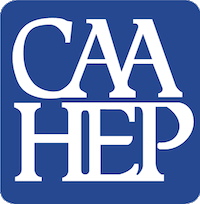Would you like a challenging and fast-paced health career that’s projected to be one of the fastest-growing this decade? The Invasive Cardiovascular Technology program is a challenging, multifaceted program designed to produce well-trained, highly qualified medical professionals.
Invasive Cardiovascular Technology at a Glance
1 year to complete1
$3,960 tuition2
- El Centro3
2 years to complete1
$5,940 tuition2
- El Centro3
What Can I Study?
I Want to Go to Work
Can I Get a Job?
Dallas College offers a variety of certificates and degrees to help you gain the skills you need to start working right away.
- These credentials are often considered Career and Technical Education (CTE).
- These credentials are established with the assistance and cooperation of representatives from local business, to meet local and regional employment needs.
- Higher level certificates and degrees will typically lead to a higher salary in the workforce.
- Workforce (CE) Certificates can often be completed faster than traditional credit certificates but typically do not offer college credit.
- Level 1, Level 2, Enhanced Skills certificates and others, offer college credit and are often stackable to help you build skills as you work towards an Associate Degree.
- Workforce credentials may give you college credit at Dallas College, but they may not transfer to other colleges or universities.
If you're unsure if this is the right path for you, you can talk to a Pathway Specialist for advice.
Pathway Specialist
- 972-669-6400
- PathwaySpecialist@DallasCollege.edu
What Can I Earn? Will There Be Plenty of Jobs?
As a cardiovascular technologist, you will help doctors perform procedures that diagnose and treat heart problems and other health issues. Check out a few of the incredible career opportunities you’ll be ready for. Your future starts here!

Cardiovascular Technologists and Technicians
$24/hr
Median Salary
118
Job Openings
+14%
Projected Outlook
Top Skills:
- Active Listening
- Monitoring
- Critical Thinking
- Speaking
- Operations Monitoring
- Reading Comprehension
- Social Perceptiveness
- Judgment and Decision Making
- Service Orientation
- Writing
All jobs data gathered for Dallas/Fort Worth. Source: Dallas College Labor Market Intelligence and Lightcast4.
“What I like about this job is that when I leave work at the end of the day, I’ve helped change the course of people’s lives. It’s doing something for the greater good. You feel good about telling someone what you do with this job.” Read Paul Marcum, RCIS's story.

A Look Inside Invasive Cardiovascular Technology
Would you like a challenging and fast-paced health career that's projected to be one of the fastest-growing this decade?
The Invasive Cardiovascular Technology program is a challenging, multi-faceted program designed to produce well-trained, highly-qualified medical professionals. Invasive Cardiovascular Technologists work in cardiac catheterization labs, commonly referred to as a cath lab. They assist cardiologists and vascular surgeons in invasive procedures such as coronary angiography, cardiac function assessments, and coronary stent deployment and may assist in opening blockages for patients on dialysis and peripheral vascular disease.
So why choose Dallas College? You'll not only gain access to our amazing faculty and teaching labs, graduates of the program are eligible to take the Registered Cardiovascular Invasive Specialist Credential exam offered by Cardiovascular Credentialing International. After passing the exam, graduates are eligible to apply for Limited Medical Radiologic License through the Texas Medical Board.
If this sounds like the perfect fit for you, visit our website for more information and begin your Dallas College journey.
The Invasive Cardiovascular Technology program is located in the Downtown Health Sciences Center (formerly El Centro's Center for Allied Health and Nursing) at 301 N. Market St., a block from the El Centro campus. The center comprises 55 classrooms and labs that contain some of the most advanced equipment available to educate health care students, including:
- Teaching labs that simulate surgical and hospital settings for specific program applications.
- Microphones and cameras in each classroom to capture audio and video instruction.
- Three classrooms with videoconferencing for two-way viewing.
- Two simulation labs with computerized patient mannequins.
Graduates of our program consistently perform above the national average on the national board exam and are automatically awarded the limited medical radiology technology credential by the Texas State Board of Health.
The Invasive Cardiovascular Technology program has its own admissions process, timeline and requirements. Visit the School of Health Sciences Information Packets and Sessions page to view the Invasive Cardiovascular Technology information packets.
Please email the Health Occupations Admissions Office or call 972-669-6400, press 1 for Admissions, followed by 2 for Nursing and Allied Health Admissions, to receive an information packet and information session details.
Students who wish to apply to the Invasive Cardiovascular program must take the HESI A2 Exam. Visit the HESI A2 Exam Applicant Information webpage for HESI A2 Exam testing information.
- Schedule your HESI A2 exam: HESI information calendar
- If you have any questions, please email 5tests@DallasCollege.edu.
This program also requires a criminal background check and drug testing.
Accreditation and Affiliations

The Invasive Cardiovascular Technology Program sponsored by Dallas College is accredited by the Commission on Accreditation of Allied Health Education Programs (www.caahep.org) upon the recommendation of the Joint Review Committee on Education in Cardiovascular Technology (www.jrccvt.org).
Commission on Accreditation of Allied Health Education Programs
9355 113th St. N, #7709
Seminole, FL 33775
Phone: 727-210-2350
Joint Review Committee on Education in Cardiovascular Technology
1449 Hill Street
Whitinsville, MA 01588-1032
Phone: 978-456-5594
The Dallas College Invasive Cardiovascular Technology program was initially accredited in 1995 and was awarded continuing accreditation in 2024.
Invasive Cardiovascular Technology Graduate Outcomes
Retention by Graduation Year:
| Graduation Year | Number of students who graduated divided by number initially enrolled | Retention Percentage |
|---|---|---|
| 2023 | 10 of 10 | 100% |
| 2022 | 5 of 8 | 63% |
| 2021 | 5 of 7 | 71% |
| 2021-2023 Total Retention Average | 20 of 25 | 80% |
Positive Placement by Graduation Year:
| Graduation Year | Number of Students Employed, or Enrolled in Continuing Education or Active military divided by Number of Graduates | Positive Placement Percentage |
|---|---|---|
|
2023 |
9 of 10 | 90% |
| 2022 | 4 of 5 | 80% |
| 2021 | 5 of 5 | 100% |
| 2021-2023 Total Positive Placement | 18 of 20 | 90% |
Credentialing Exams:
| Graduation Year | Number of Graduates who passed Credentialing Exam (CCI RCIS) out of Number who Attempted the Exam | Passing Percentage |
|---|---|---|
| 2023 | 8 of 9 | 89% |
| 2022 | 3 of 3 | 100% |
| 2021 | 5 of 5 | 100% |
| 2021-2023 Passing Average | 16 of 17 | 94% |
Find Out More About Invasive Cardiovascular Technology
Sign up to receive additional information about Invasive Cardiovascular Technology or call 972-669-6400.
School of Health Sciences
- 972-669-6400
- AskSOHS@DallasCollege.edu
Dallas College
- 972-669-6400
- Text College to 214-978-6457
- StudentHelp@DallasCollege.edu
1Length of time is based on catalog degree plans. Prerequisites may be required, which are not included in this estimate. For most programs, full-time student status is assumed, a minimum of 12 credit hours per semester.
2Cost is based on tuition rates for program hours for Dallas County residents. The price of most required learning materials (books, software, supplies, etc.) is included with the price of tuition. Visit our Paying for College site to learn more about cost, financial aid, scholarships and more.
3Each location offers a unique combination of certificate and degree options. Not all degree and certificate offerings are available for admission/start at all campuses every semester.
4A portion of Lightcast’s data comes from O*NET Online by the U.S. Department of Labor, Employment and Training Administration (USDOL/ETA). Used under the CC BY 4.0 license. O*NET® is a trademark of USDOL/ETA. Lightcast has modified all or some of this information. USDOL/ETA has not approved, endorsed, or tested these modifications.
HB1508 Notice
This program may lead to an occupational license for which a prior criminal history may make a student ineligible.
For more information, please visit dallascollege.edu/hb1508.

